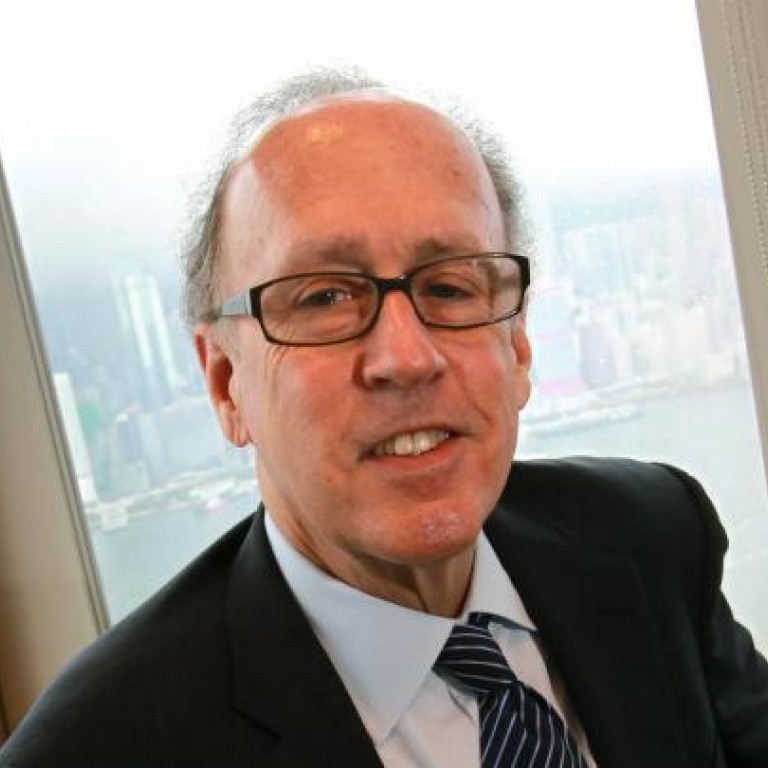
Dr Doom opens up on Money for Nothing
Marc Faber, the Swiss investor known as Dr Doom, was the star turn of RTHK's Money For Nothing finance programme yesterday morning. This was a special show in that it was a winning item from an auction for Operation Santa Claus, which raises money for charity. The wife of Nick Green, managing director of the executive search firm GreenGroup Executive, bid HK$8,000 for "breakfast with Marc Faber", as a present for her husband.
Faber was his usual mixture of engaging and bearish. He conceded: "We forecasters are terrible at forecasting anything," but added that his job was harder last year when he had to contend with unpredictable interventions by governments and central banks. The world was better off without central banks, he said. Noting that the Federal Reserve justified its actions in the interest of maintaining price stability, Faber said: "It has been empirically proved that there was much better price and economic stability in the 19th century, before the central bank, ie the Federal Reserve, was formed in 1913."
As for his investing style, he revealed an interesting opportunistic streak by buying Sun Hung Kai Properties after the stock had declined in the wake of its corruption scandal.
Stephen Roach, now at the Yale School of Management, has written an interesting article titled "China's Last Soft Landing?" In what is a surprisingly forthright piece, Roach, the former Morgan Stanley chief economist and chairman of Morgan Stanley Asia, observes that Beijing appears to have defied the sceptics and pulled off another soft landing, the second in four years.
However, he argues that this may be the last time the mainland can escape an external shock with growth intact. He says the problem was addressed by Premier Wen Jiabao in a speech six years, in which Wen said that the mainland economy had become "unstable, unbalanced, unco-ordinated, and ultimately unsustainable".
China's model, Roach argues, has become more stretched than ever before. "There has never been a more urgent time to get on with the heavy lifting of rebalancing and reform. Now is the time to implement the measures that will accelerate the transition to a more consumer-led economy," he says.
The reforms needed, Roach says, include "developing the services sector, funding the social safety net, liberalising an antiquated residential permit system, reforming state-owned enterprises, and ending financial repression on households by lifting artificially low interest rates on savings". Failure to act quickly, he says, will leave the mainland far too vulnerable "to the inevitable next shock in a crisis-battered world".
Roach concludes his piece somewhat ominously, noting: "I have been an optimist about China for the last 15 years. I still am. But the clock is ticking."
A new financial acronym has come to our attention courtesy of Berenberg Bank. It has coined the term Scary, which focuses on a bank's solvency, complexity, adaptability, risks and belief in structural change, reports. Why "Y"? Y for "Yes, we do believe in structural change", apparently.
Berenberg has applied this framework to European banks with a view to assessing which banks will survive a major upheaval. Long-term survivors include Handelsbanken, HSBC, ING, KBC, Swedbank and UBS. Spanish French and Italian banks don't make the cut. The analysis goes out in a note titled "European banks: Mad, bad and dangerous to know".
Flamboyant mainland entrepreneur Chen Guangbiao, has started selling fresh air in cans, to make the point that China's air is turning so bad that the idea of canned fresh air is no longer fanciful. recalls there was a time when the idea of bottled water seemed absurd.
"If we don't start caring for the environment, then after 20 or 30 years our children and grandchildren might be wearing gas masks and carry oxygen tanks," Chen told the . Chen is selling his cans of air for five yuan (HK$6.16) each. It comes in three varieties: pristine Tibet, post-industrial Taiwan and revolutionary Yan'an, the Communist Party's headquarters in its early years.

